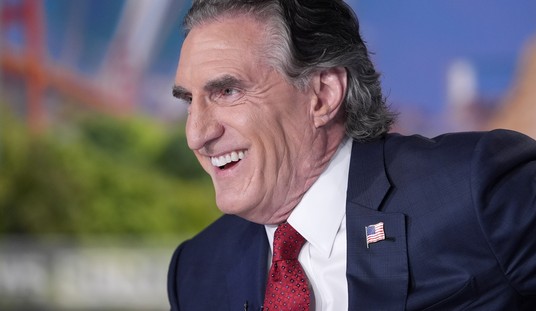The Vatican today made clear that last year’s remarks from Pope Francis on the death penalty didn’t just amount to an extemporaneous personal teaching after all. Earlier today, the Holy See announced that the pontiff had ordered changes to the Catechism of the Catholic Church (CCC) to make the death penalty forbidden entirely. That changes centuries of teaching, but those teachings have also been evolving ever since the end of World War II:
According to the Catechism of the Catholic Church, the death penalty now is no longer admissible under any circumstances.
The Vatican announced on Thursday Pope Francis approved changes to the compendium of Catholic teaching published under Pope John Paul II.
“The death penalty is inadmissible because it is an attack on the inviolability and dignity of the person,” is what the Catechism of the Catholic Church now says on the death penalty, adding that the Church “works with determination for its abolition worldwide.”
This is a departure from what the document, approved under Pope John Paul II in 1992, says on the matter: “Assuming that the guilty party’s identity and responsibility have been fully determined, the traditional teaching of the Church does not exclude recourse to the death penalty, if this is the only possible way of effectively defending human lives against the unjust aggressor.”
Even under St. John Paul, though, the teaching was more or less a technicality. The Vatican has been working to repeal death penalty laws for much longer than Pope Francis’ pontificate under the premise that they are almost always unjust in practice. The previous catechism still allowed the potential for execution in extremely rare cases where its absence would allow “the unjust aggressor” to take more innocent lives. St. John Paul noted in the previous edition of the CCC in 1997, however, that such cases “are very rare, if practically non-existent,” because of the ability to securely detain such people in almost all instances.
When Francis first raised the issue to the potential level of church teaching in May 2017, I reviewed the history of those teachings and the direction toward abolition in which they have been moving. Crux notes that the pontiff requested the new language six months later to “better reflect the development of doctrine on this point,” to make clear its impact on human dignity and its status as an “inhuman measure.” Today’s announcement was inevitable.
The removal of the previous technical opening will create tension and conflict among faithful Catholics who see the death penalty as a rare but necessary option. At least, it appears the Vatican has grown a bit more sensitive to this point after Francis suggested that support would be a mortal sin in his May 2017 homily. Crux reports that Cardinal Luis Ladaria, prefect for the Congregation for the Doctrine of the Faith, argued that this was not a change in doctrine but a development of its understanding, a sotto voce invitation for Catholics to find a way to embrace it:
According to Ladaria, the new formulation of the Catechism expresses “an authentic development of doctrine that is not in contradiction with the prior teachings of the Magisterium.”
He then explains that previous Church teaching with regards to the death penalty can be explained in a social context in which the penal sanctions were understood differently, and “had developed in an environment in which it was more difficult to guarantee that the criminal could not repeat his crime.”
Ladaria takes care to point out in his letter to bishops that both St. John Paul and Pope Emeritus Benedict XVI both wrote explicitly in favor of abolishing the death penalty as part of supporting a culture of life. Perhaps that will ease the jolt of this transition, but a number of faithful Catholics still support the death penalty for particularly inhumane and depraved behavior, and do so in good-faith reliance on previous teachings and specific points of scripture. Even if the “mortal sin” language has been dropped explicitly, it will hang in the air nonetheless with these changes to the catechism. These Catholics will find themselves having been separated from the church without having moved at all, a position of injustice if not mitigated properly in this process — even if in practice the church has been moving in this direction for decades.
Update: EWTN host Raymond Arroyo questions the timing:
The change of the Catechism's teaching on the death penalty today has triggered a lot of anger among Catholics on social media. Coming in the midst of the sex abuse revelations, the timing is curious… and more fury is not what the Church needs at this moment.
— Raymond Arroyo (@RaymondArroyo) August 2, 2018
His last point is well taken about “more fury,” but the timing issue is almost certainly coincidental. Francis issued the direction to consider changes to the CCC months before the case of Cardinal McCarrick emerged, and was talking about it fifteen months ago. Under these circumstances, though, it might have been wiser to put off the announcement.








Join the conversation as a VIP Member